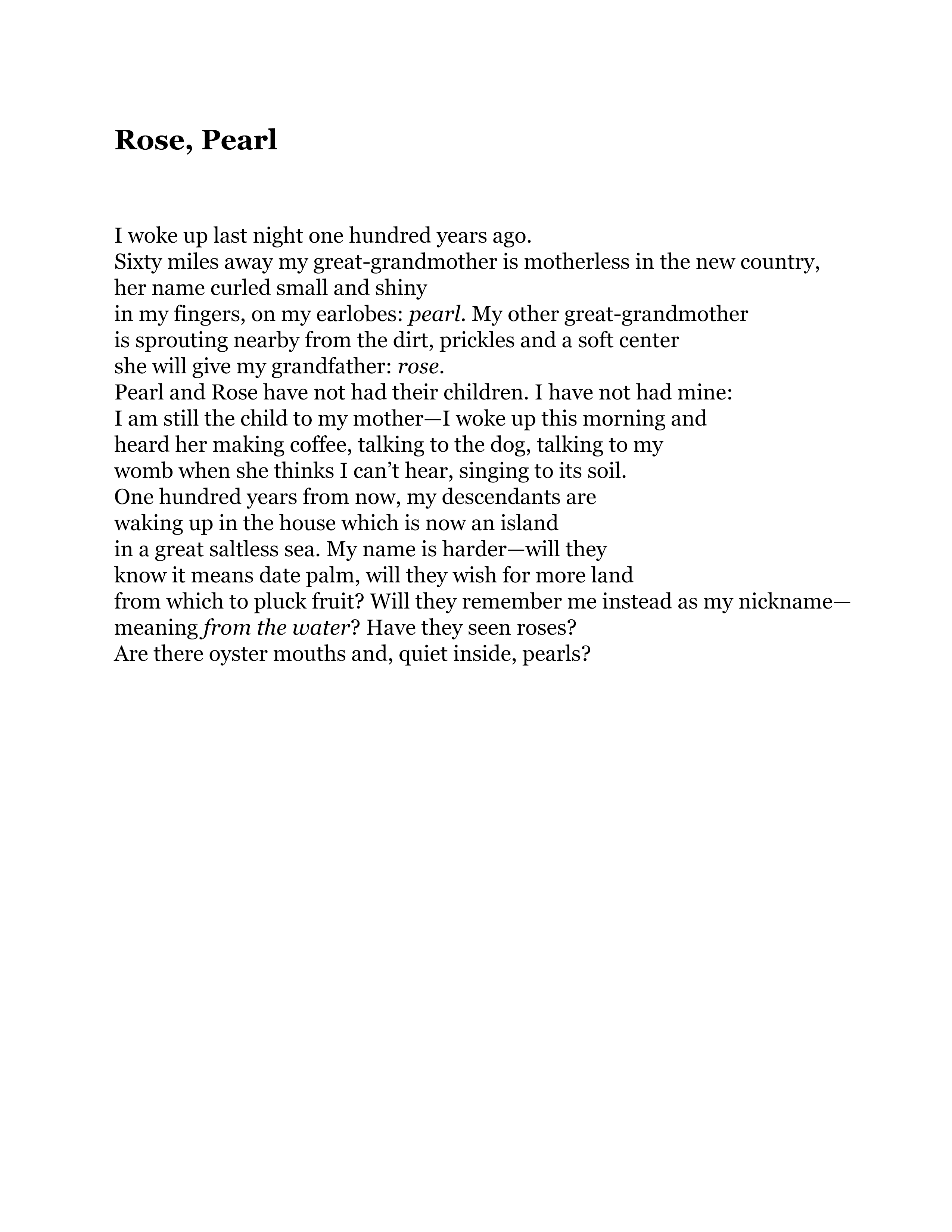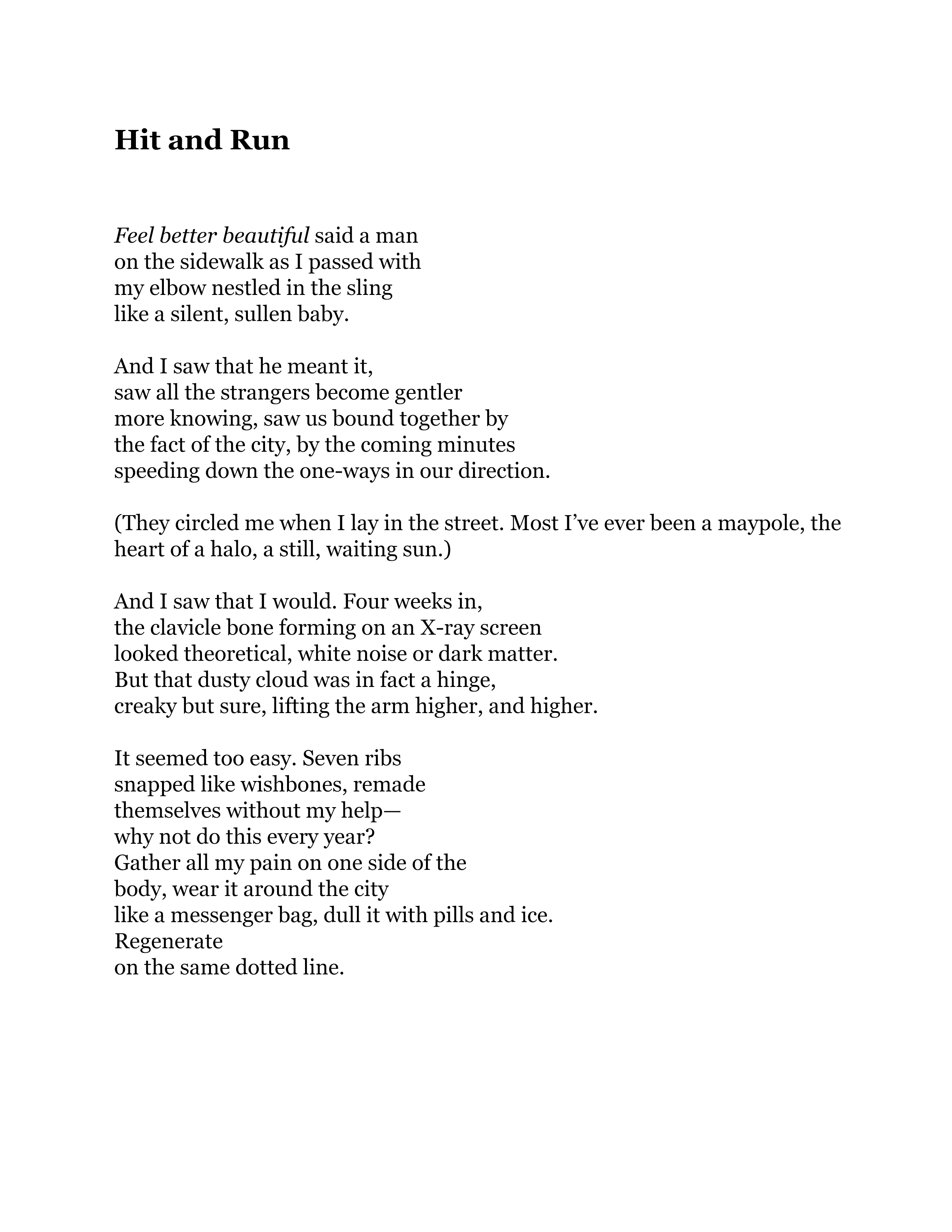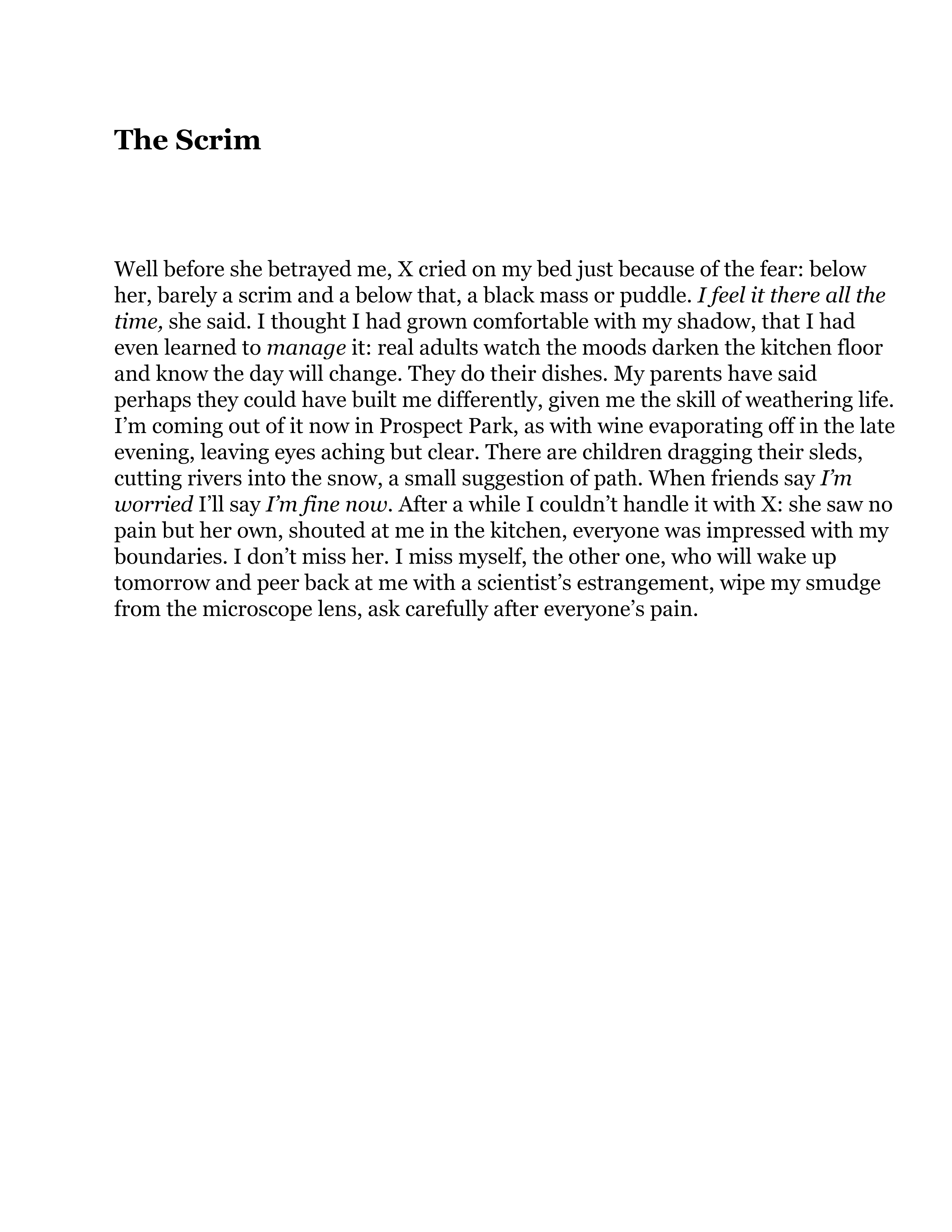3 poems by Mari Cohen
1 essay by Cecilia Smith,
on the poems of Mari Cohen
On “Rose, Pearl”
The speaker’s mother talks to the speaker’s womb, not the baby inside. And the womb is mainly an empty space where something happens. Moreover, the future child that will occupy this space is never mentioned, and the birth comes off as threatening. Birth strips away names and identities, disrupting the mother’s relationships. The process is presented as sacred and nullifying at the same time.
On “Hit and Run”
I see the word regenerate. Not grow, or heal, or recover. More systematic, like it’s happening at the command of an algorithm. The speaker’s recovery happens with or without their effort, and counteracting this assured physical healing is the threat that something else will not regenerate. “Feel better beautiful” and “regenerate” are not, after all, the same. Something frightened here.
On “The Scrim”
Boundaries, figurative or literal. People say boundaries are a healthy thing, something to be praised, but the speaker has a way of laying down these boundaries while at the same time undermining them. A scrim is a boundary, but it obscures, creates shadows and moods. And like a scrim, the speaker lets us see exactly as much as they want us to. The silhouette of starkness and certainty is hollow: friends will worry, dishes break, the children’s paths in the snow melt away.
More on “The Scrim”
I see the word estrangement. There’s an allusion to this in “Rose, Pearl,” too. Do time and distance estrange us from our ancestors? Does the fact of becoming a parent estrange you from your parents, undo your status as a child? There is also the issue of being a stranger to oneself. In “Hit and Run,” the speaker is estranged from their physical body; in “The Scrim,” they are estranged from a self that operates in parallel.
Yet More on “The Scrim”
Each of these poems starts in the past and ends in an imagined future. Sometimes the future is certain (“the other one, who will wake up tomorrow and peer back at me”) and sometimes it isn’t (“Are there oyster mouths, and quiet inside, pearls?”). The speakers in these poems are always grasping for something, using a definitive future tense to try to ensure their desired outcome. At the same time, the speakers know that life is a balance between laying plans and throwing them out the window. What’s coming is anyone’s guess; what’s now is a lot of unease.



